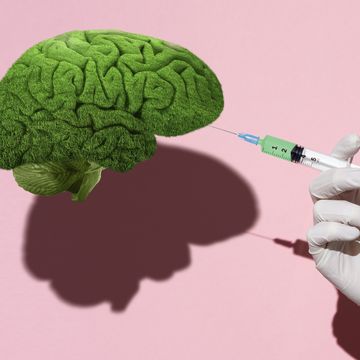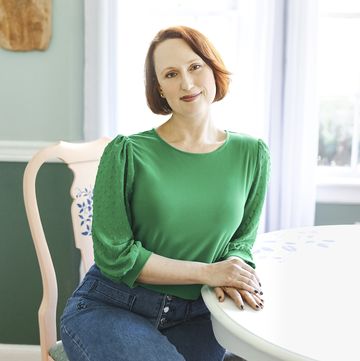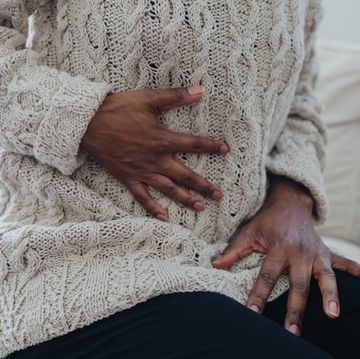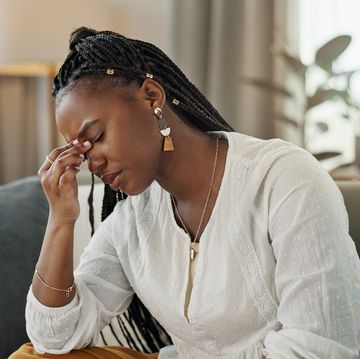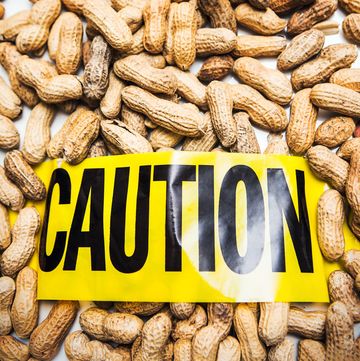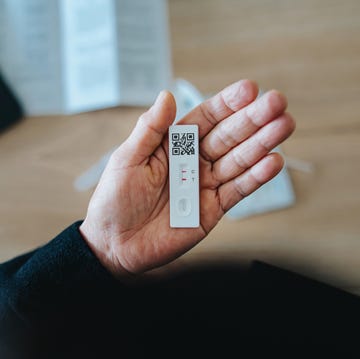- Jeopardy! host Alex Trebek has given an update on his health in recent interviews. The 79-year-old revealed his stage 4 pancreatic cancer diagnosis in March.
- Trebek confirmed in May that he was in “near remission” due to successful treatment and positive support. Now, he confirms he has completed chemotherapy and will return to host the 36th season of Jeopardy!
- Doctors explain why some patients choose to keep working as they undergo cancer treatment and what side effects they may face.
When Jeopardy! host Alex Trebek revealed his stage 4 pancreatic cancer diagnosis back in March, he returned to filming the show less than a week after his stunning announcement. Trebek, 79, vowed to be back to work quickly, and apparently he meant it. He says he has completed chemotherapy treatments, is “on the mend,” and will return to host the 36th season of Jeopardy!, according to a new video posted to the official Jeopardy! Twitter account. New episodes will start airing on local TV stations September 9.
During the last day of taping the show, Trebek gave an update on his health, emphasizing that he isn’t slowing down any time soon. “Despite what you may have heard, I’m feeling good, I’m continuing with my therapy and we, by we, the staff, is already working on our next season, the 36th year of Jeopardy!. I look forward to seeing you once again in September with all kinds of good stuff,” he said in a video. In May, Trebek confirmed that he is in “near remission,” and that some of his tumors have shrunk by more than 50 percent.
Trebek’s journey through cancer treatment hasn’t been easy, though. In an interview with Good Morning America, he revealed that he has experienced several side effects during chemo, including surges of “deep sadness” and agonizing stomach cramps. Still, the beloved trivia host insisted that things were looking up then. “I’m fighting through it. My platelets, my blood counts are steady. My weight is steady... The cancer indicators, those are coming down,” he told Robin Roberts on the show.
According to the American Cancer Society (ACS), people diagnosed with stage 4 pancreatic cancer (the most severe form of the disease) usually have a 3 percent five-year survival rate. “I plan to beat the low survival rate statistics for this disease,” Trebek said in his first video announcement, before joking that “I have to because under the terms of my contract, I have to host Jeopardy! for three more years.”
Jeopardy! typically does two production days a week, filming multiple episodes in a row, CNN says. That makes for long work days for anyone, let alone someone who is undergoing treatment for stage 4 cancer. Here, doctors explain why some patients choose to keep working and what side effects they may face.
How common is it to keep working while undergoing chemotherapy?
It ultimately depends on the patient. Everyone handles this kind of diagnosis differently, says Vinod M. Varki, MD a medical oncologist and hematologist at Medical Oncology and Hematology at Mercy in Baltimore, a division of The Institute for Cancer Care at Mercy. “Getting the diagnosis is obviously very traumatic and scary, and advanced pancreatic cancer is a very tough disease to beat,” he says.
Doctors typically recommend that a patient undergoes chemotherapy if they’re willing and strong enough, and that they start it ASAP, Dr. Varki says.
What are the side effects of chemotherapy?
“It varies,” Dr. Varki says. Chemotherapy drugs work by killing fast-growing cells, which include those that are cancerous and those that are healthy, he points out.
Damage to those healthy cells can cause side effects like fatigue, hair loss, easy bruising and bleeding, infection, nausea and vomiting, anemia, diarrhea, mouth, tongue and throat problems, and weight changes, the ACS says. But everyone experiences chemotherapy differently—some may have many side effects, while others will notice fewer side effects. “Some people are able to go back to work if they have minimal side effects,” Dr. Varki says.
Often, chemotherapy is most difficult at the beginning. That’s especially true for people with cancer as advanced as Trebek’s. “Once you have stage 4 cancer, you’re on chemotherapy for the rest of your life,” Dr. Varki says. “But, once patients get treatment, they often adjust to this new normal and may be able to work.”
Dr. Varki wants other people who have stage 4 pancreatic cancer to know that it’s a “very tough and very difficult” illness. But, he adds, “there are treatments that can keep the cancer at bay.”
What did Alex Trebek’s cancer treatment look like?
Trebek admits that he experienced several side effects during chemotherapy. In fact, he told CBS Sunday Morning he had to wear a hairpiece during certain tapings of Jeopardy!, and that he challenges viewers to spot the difference in future episodes. “On air I’m told that there were times when the hairpiece looked better than my real hair,” he said. “So we’ll see how people react to that.”
“We have the summer months off. So hopefully my own hair will grow back,” Trebek added. “Because I like my own hair.”
In addition to hair loss, Trebek says that he had to deal with agonizing stomach cramps during the start of his treatment, which usually lasted 10 to 15 minutes and left him “writhing in pain” in his dressing room, per People. Chemotherapy can cause dull or sharp abdominal pains and cramping, since the drugs can interfere with intestinal activity and bacteria, according to the UNM Comprehensive Cancer Center.
Trebek also revealed on Good Morning America (GMA) that undergoing chemotherapy led to dramatic mood changes. “My oncologist tells me I’m doing well, even though I don’t always feel it. I’ve had kidney stones, I’ve had ruptured discs, so I’m used to dealing with pain. But what I’m not used to dealing with, is the surges that come on suddenly of deep, deep sadness—and it brings tears to my eyes,” he said on the show.
“Chemo affects people in different ways, and people have to understand that. There’s nothing wrong with saying ‘Hey, I’m really depressed today and I have no idea why.’” he added. “The chemo takes it out of you. I mean, I feel so weak all the time, and that’s not a good place to be.”
However, Trebek told People the wave of positive support made all the difference. “I’ve got a couple million people out there ere who have expressed their good thoughts, their positive energy directed towards me and their prayers,” he says. “I told the doctors, this has to be more than just the chemo, and they agreed it could very well be an important part of this.”
Stay updated on the latest science-backed health, fitness, and nutrition news by signing up for the Prevention.com newsletter here. For added fun, follow us on Instagram.
Alisa Hrustic is the deputy editor at Prevention, where she leads the brand’s digital editorial strategy. She’s spent the last five years interviewing top medical experts, interpreting peer-reviewed studies, and reporting on health, nutrition, weight loss, and fitness trends for national brands like Women’s Health and Men’s Health. She spends most of her days diving into the latest wellness trends, writing and editing stories about health conditions, testing skincare products, and trying to understand the next greatest internet obsession.


